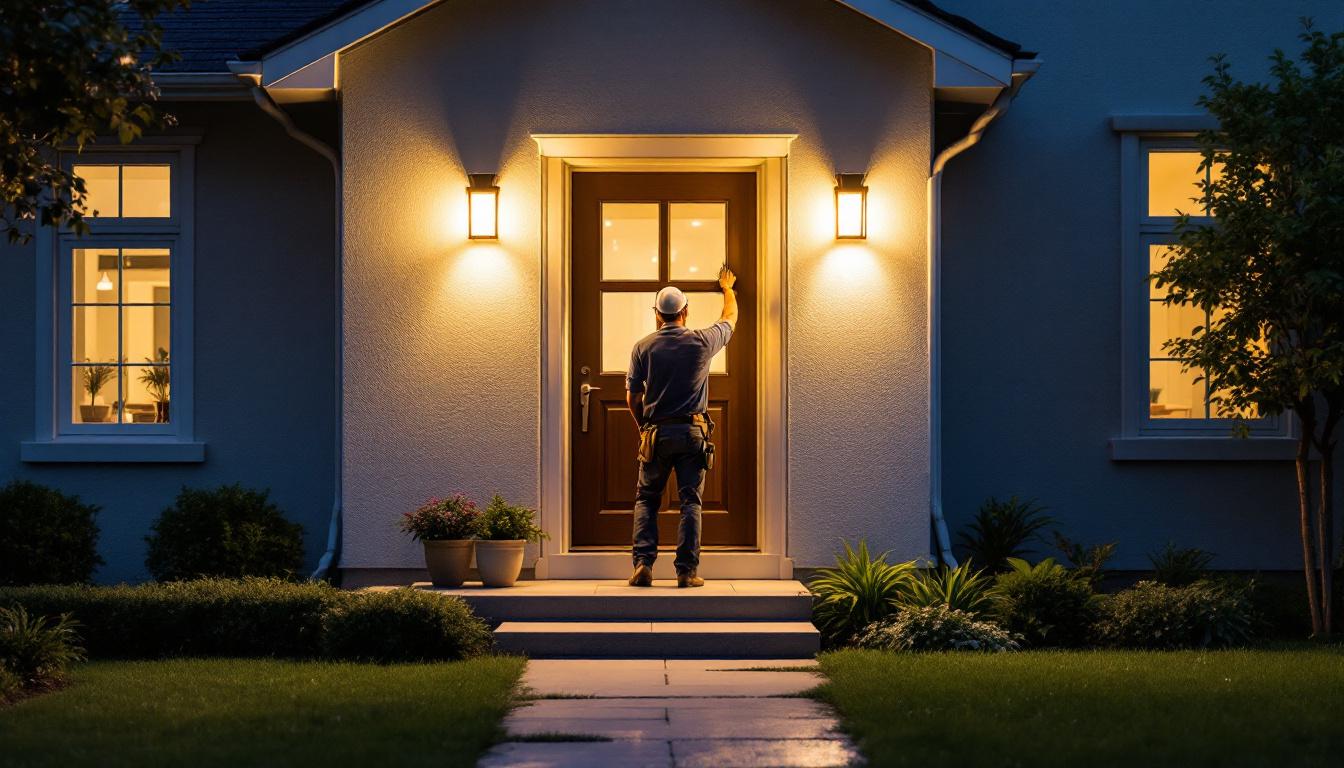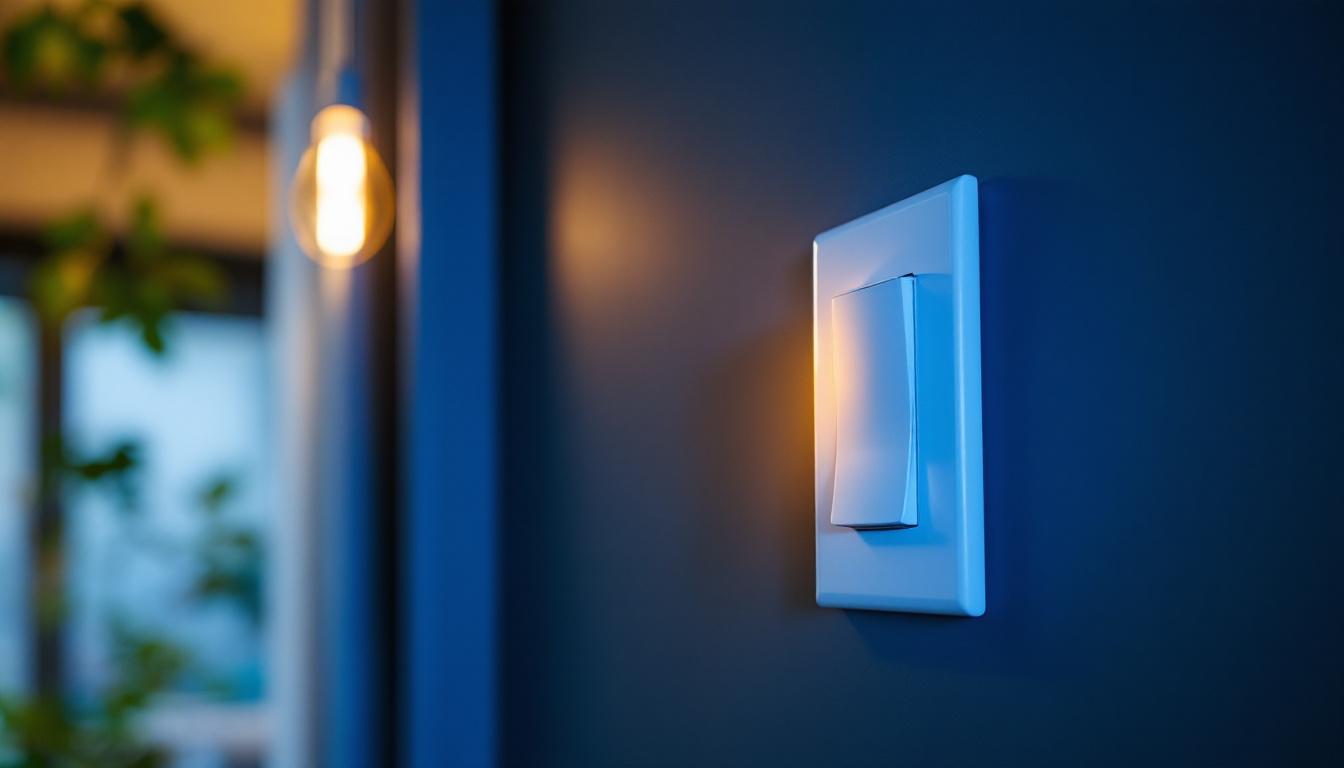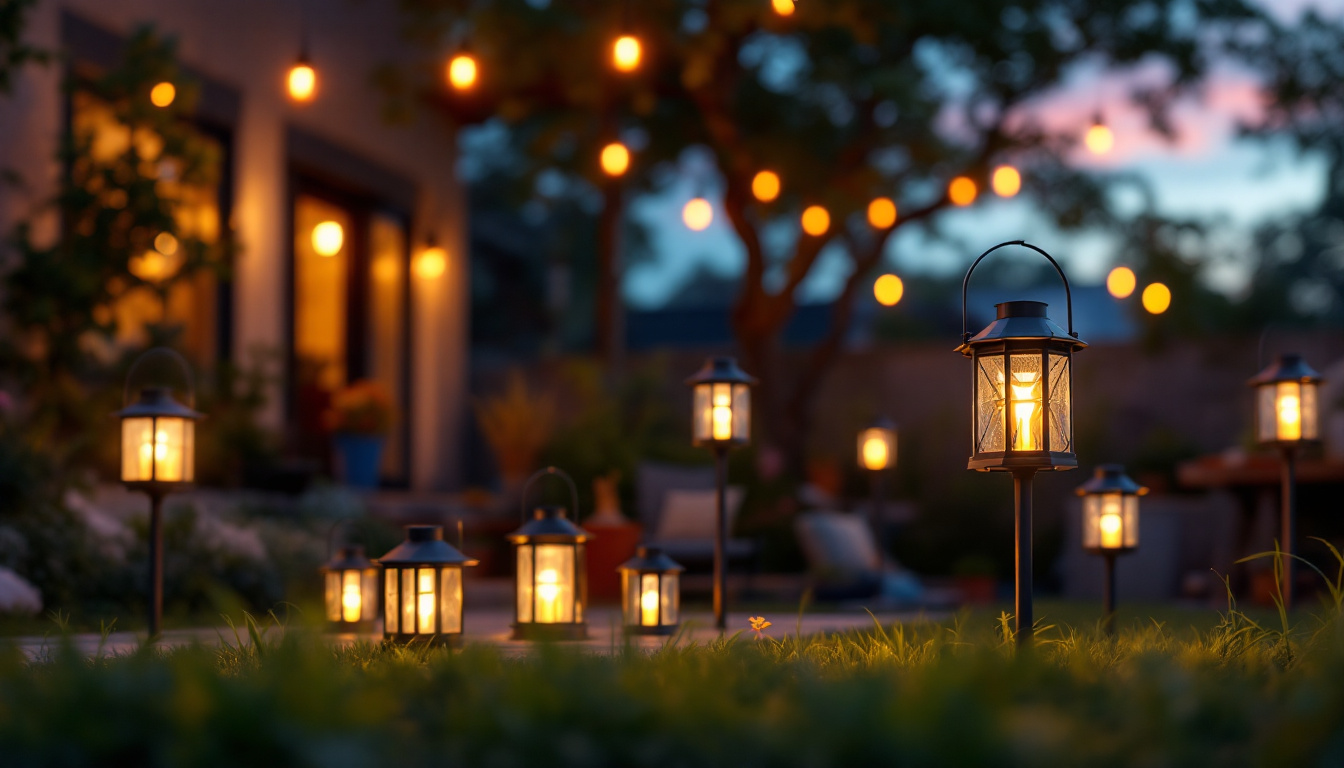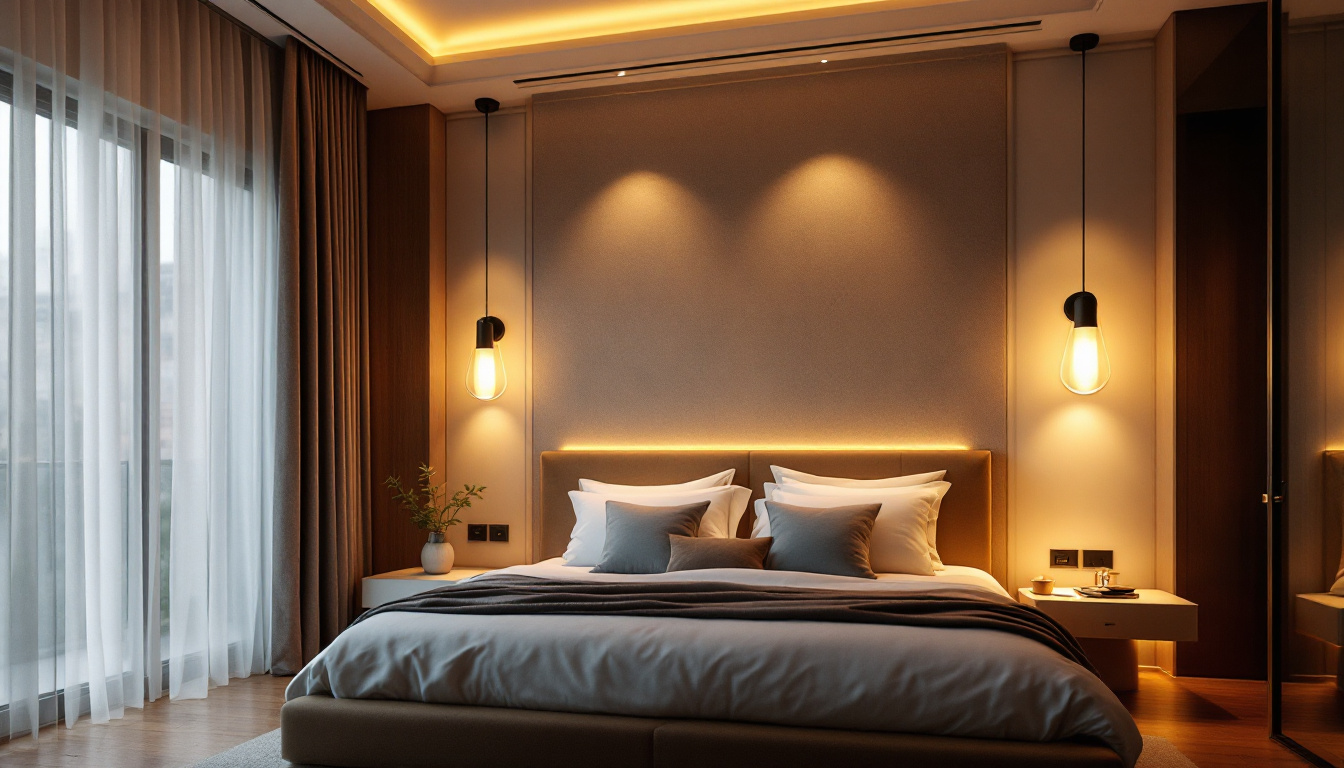
As the demand for sustainable and energy-efficient solutions continues to rise, solar front door lights have become an increasingly popular choice for homeowners. For lighting contractors, understanding the nuances of solar lighting installation is crucial to delivering quality service. However, there are common pitfalls that can detract from the effectiveness and appeal of these systems. This guide aims to illuminate these mistakes and provide actionable insights for lighting contractors.
Solar front door lights harness solar energy to illuminate entryways, offering a convenient and eco-friendly lighting solution. Unlike traditional lighting systems, which rely on electrical wiring, solar lights operate independently, drawing energy from the sun during the day and utilizing it at night. This feature not only reduces energy costs but also simplifies installation, making it an attractive option for both contractors and homeowners. Furthermore, the advancement in solar technology has led to more efficient panels and batteries, allowing for longer-lasting illumination even on cloudy days or during the winter months when sunlight is scarce.
Solar front door lights typically consist of several key components: solar panels, batteries, LED bulbs, and sensors. The solar panels collect sunlight and convert it into electrical energy, which is stored in batteries for nighttime use. LED bulbs are favored for their energy efficiency and longevity, while sensors can detect ambient light levels or motion, enhancing functionality. Some modern solar lights even come equipped with smart technology, enabling them to connect to home automation systems, allowing users to control lighting remotely or set schedules for when the lights should turn on or off.
One of the primary benefits of solar front door lights is their low maintenance requirements. Once installed, they generally require minimal upkeep, as long as the solar panels are kept clean and free from obstructions. Additionally, these lights can enhance the aesthetic appeal of a home, providing both safety and decorative illumination. Homeowners can choose from a variety of styles and designs, ranging from sleek and modern to classic lanterns, ensuring that the lights complement the overall architecture of their home. Moreover, solar lights can increase security by illuminating dark areas, deterring potential intruders and providing a safer environment for residents and guests alike.
Despite their advantages, solar lights come with their own set of challenges. Factors such as location, weather conditions, and battery quality can significantly impact performance. Understanding these challenges is essential for contractors aiming to deliver optimal results. For instance, installing solar lights in shaded areas may result in insufficient charging, leading to dim or non-functional lights at night. Additionally, extreme weather conditions, such as heavy rain or snow, can affect the durability and lifespan of the components. It is crucial to select high-quality products designed to withstand local climate conditions, ensuring that the investment in solar lighting pays off in the long run. Proper placement and periodic checks can also help mitigate some of these challenges, allowing homeowners to enjoy the full benefits of their solar front door lights.
Even experienced contractors can fall prey to common mistakes when installing solar front door lights. Recognizing these pitfalls can help ensure a successful installation and satisfied clients.
One of the most significant errors in solar lighting installation is selecting an inadequate location for the solar panels. Solar lights require direct sunlight to function optimally. Installing them in shaded areas, such as under trees or eaves, can severely limit their charging capabilities. It is essential to assess the site for sun exposure throughout the day, ensuring that the solar panels receive ample sunlight.
Additionally, consider the angle of the solar panels. Proper positioning can enhance their efficiency, allowing for maximum sunlight absorption. A well-placed solar light can provide brighter illumination and a longer operational lifespan. Moreover, it’s beneficial to conduct a shadow analysis, particularly during different seasons, as the angle of the sun changes. This proactive approach can help identify potential obstructions that may not be immediately apparent, ensuring that the lights will perform well year-round.
Weather conditions can significantly influence the performance of solar lights. In areas with frequent cloud cover, rain, or snow, the efficiency of solar panels may be compromised. Contractors should assess local weather patterns and recommend solar lights with robust battery capacities to ensure reliable performance even during less sunny periods.
Furthermore, it is essential to consider the materials used in the solar lights. Products designed to withstand harsh weather conditions will ultimately provide better longevity and performance. Educating clients about the importance of selecting weather-resistant models can prevent future dissatisfaction. For instance, lights with corrosion-resistant casings or those designed to handle extreme temperatures can be invaluable in prolonging the life of the installation. Additionally, discussing the potential for seasonal maintenance, such as clearing debris from panels or checking seals, can help clients understand the importance of ongoing care for their solar lighting systems.
The battery is a critical component of solar front door lights, as it stores the energy collected during the day for nighttime use. Many contractors make the mistake of overlooking battery quality, opting for lower-cost options that may not provide adequate performance. Investing in high-quality batteries can make a significant difference in the longevity and efficiency of the lighting system.
It is also essential to educate clients on the importance of battery maintenance. Regular checks and replacements can ensure that the lights continue to function optimally and provide reliable illumination. Additionally, contractors should inform clients about the different types of batteries available, such as lithium-ion versus lead-acid, and how each type can affect performance and lifespan. Understanding the trade-offs between cost and quality can empower clients to make informed decisions that will benefit them in the long run. Furthermore, discussing the signs of battery wear, such as dimming lights or inconsistent performance, can help clients recognize when it’s time for a replacement, ensuring that their solar lights remain effective and dependable.
To avoid common mistakes and ensure a successful installation, contractors should adhere to best practices when working with solar front door lights. These practices not only enhance performance but also build trust with clients.
A comprehensive site assessment is crucial before installation. This assessment should include evaluating sun exposure, potential obstructions, and the overall aesthetic of the property. By understanding the unique characteristics of each installation site, contractors can make informed decisions about the placement and type of solar lights to use.
Additionally, discussing the assessment findings with clients can foster a collaborative approach, allowing for adjustments based on their preferences and expectations.
Once the installation is complete, educating clients about the operation and maintenance of their solar front door lights is essential. Providing clear instructions on how to clean solar panels, check battery health, and adjust settings can empower clients to take ownership of their lighting systems.
Consider creating a simple maintenance guide or checklist for clients, outlining key tasks and timelines. This proactive approach can help prevent issues and ensure that the lights continue to perform effectively over time.
Every homeowner has unique preferences when it comes to lighting. Offering customization options can enhance client satisfaction and set a contractor apart from competitors. This could include options for different brightness levels, color temperatures, or even smart technology integration.
By providing tailored solutions, contractors can demonstrate their commitment to meeting client needs and preferences, ultimately leading to positive referrals and repeat business.
In addition to functionality, aesthetics play a vital role in the appeal of solar front door lights. Properly designed and placed lights can significantly enhance the overall look of a home’s exterior.
Solar lights come in various styles, from modern to traditional. Understanding the architectural style of the home can guide contractors in selecting the most suitable lighting fixtures. For instance, a contemporary home may benefit from sleek, minimalist designs, while a traditional home might look best with ornate fixtures.
Encouraging clients to consider the overall design theme of their property can lead to a more cohesive and visually appealing installation.
Layering different types of lighting can create depth and interest in outdoor spaces. In addition to front door lights, contractors can recommend accent lighting, pathway lights, or even decorative solar lanterns to enhance the overall ambiance.
By discussing layering techniques with clients, contractors can help them envision a more dynamic and inviting outdoor space, ultimately leading to greater satisfaction with the final results.
As technology continues to evolve, integrating smart features into solar front door lights can provide added convenience and functionality. Features such as motion sensors, timers, and smartphone connectivity allow homeowners to customize their lighting experience.
Contractors who stay informed about the latest advancements in solar technology can offer clients innovative solutions that enhance both security and convenience.
Solar front door lights present a unique opportunity for lighting contractors to provide sustainable and attractive solutions for homeowners. By avoiding common mistakes and adhering to best practices, contractors can ensure successful installations that meet client expectations.
Understanding the nuances of solar lighting, from site assessment to aesthetic considerations, is essential for delivering quality service. By educating clients and offering tailored solutions, contractors can build lasting relationships and establish themselves as trusted experts in the field.
As the demand for energy-efficient solutions continues to grow, embracing solar technology can position contractors at the forefront of the industry. With the right knowledge and approach, solar front door lights can illuminate not just homes, but also the path to a sustainable future.
Ready to elevate your lighting installations with the best in solar technology? At LumenWholesale, we provide lighting contractors like you with spec-grade, top-quality solar front door lights at unbeatable wholesale prices. Our extensive selection is designed to meet the highest industry standards, ensuring you deliver reliable and high-performance lighting to every homeowner. With free shipping on bulk orders, you can stock up on premium lighting solutions without worrying about hidden fees or inflated markups. Make your next project shine by choosing the perfect blend of quality, affordability, and convenience at LumenWholesale. Discover our range of sustainable lighting options and take advantage of the best value in wholesale lighting by visiting our collection today.

Discover how a single pole switch enhances lighting efficiency for contractors, saving up to 30% energy. Learn key benefits and optimize your projects today!.

Discover how solar lanterns at Lowes are revolutionizing the lighting industry for contractors.

Discover essential tips and common pitfalls for lighting contractors working with LED strip light kits.

Discover expert tips for lighting contractors to seamlessly install bedroom flush mount lighting.